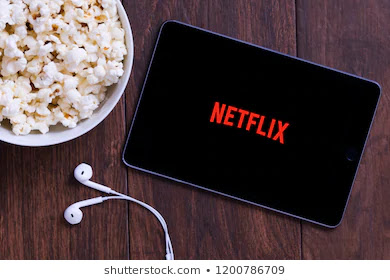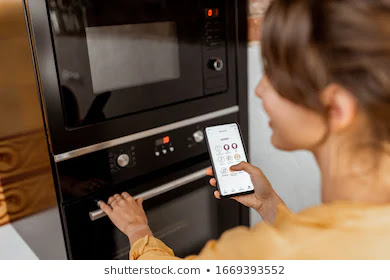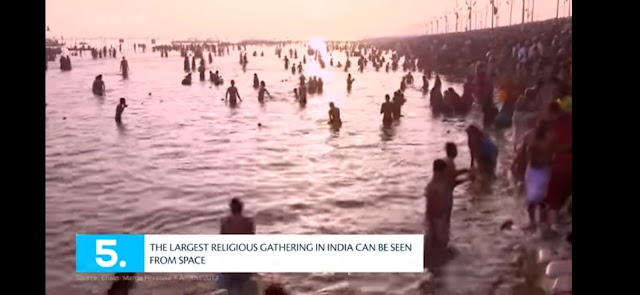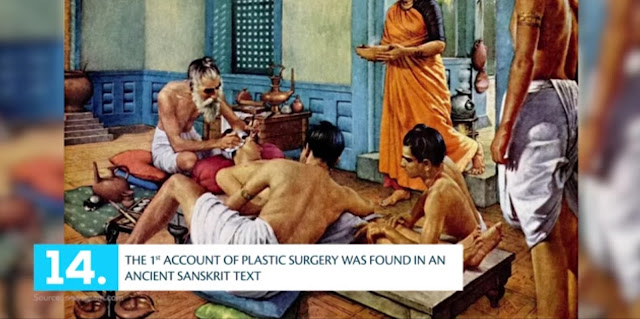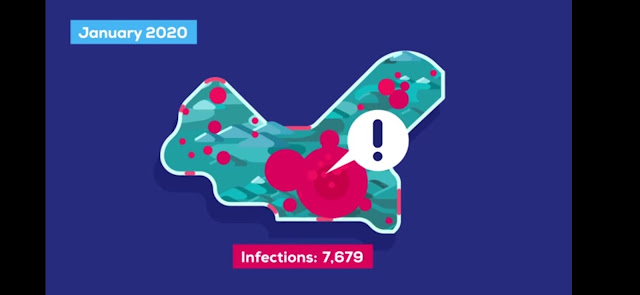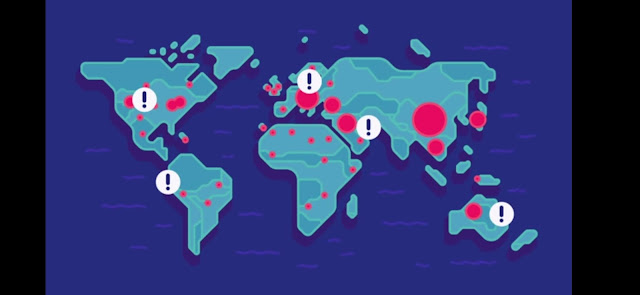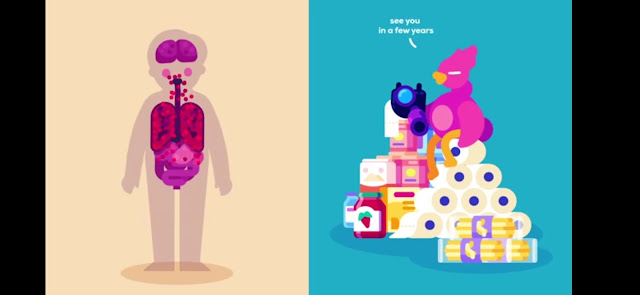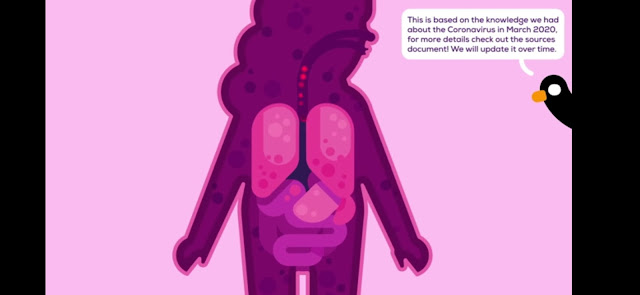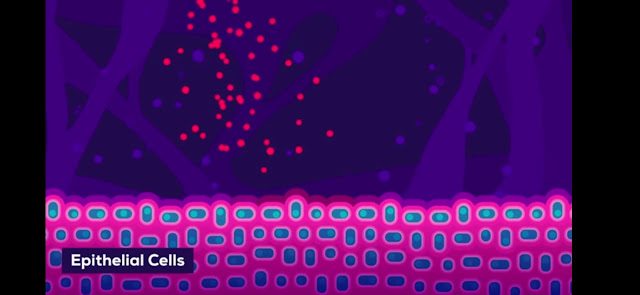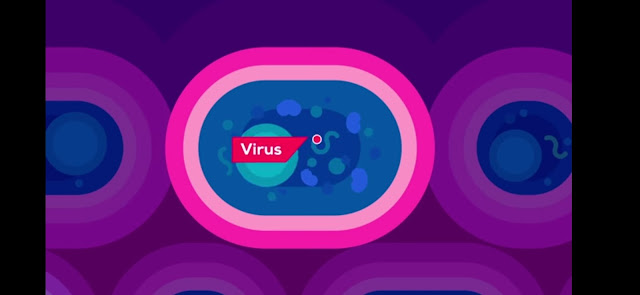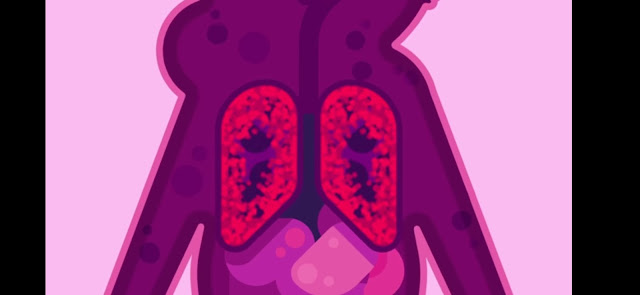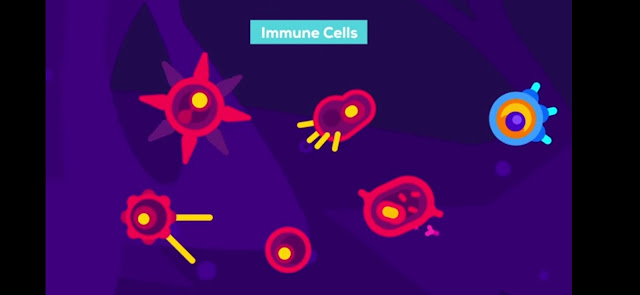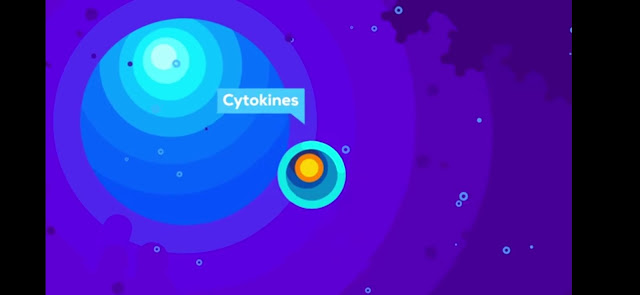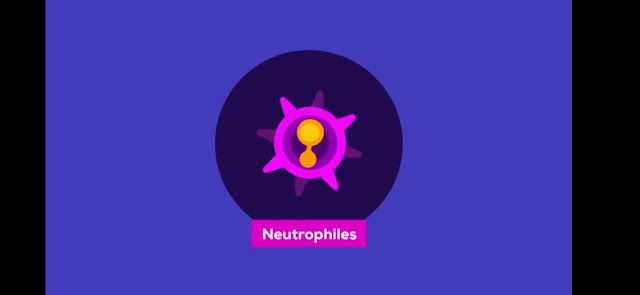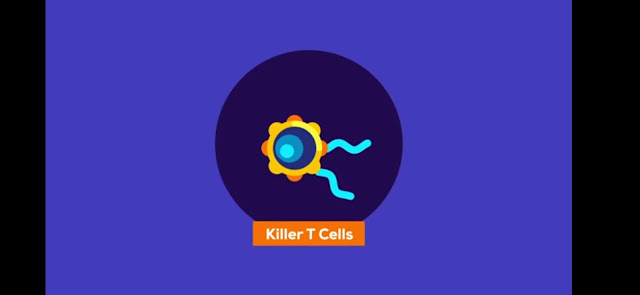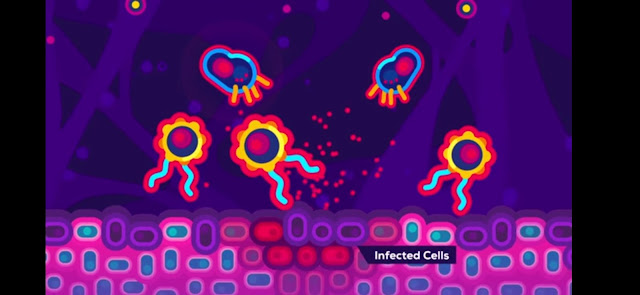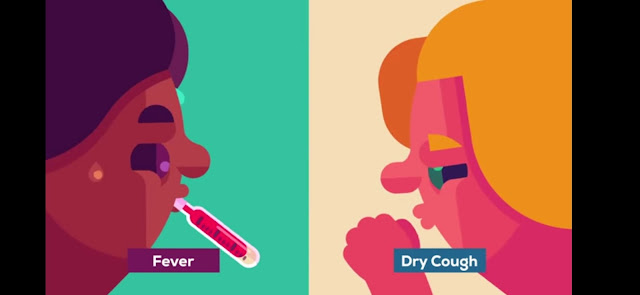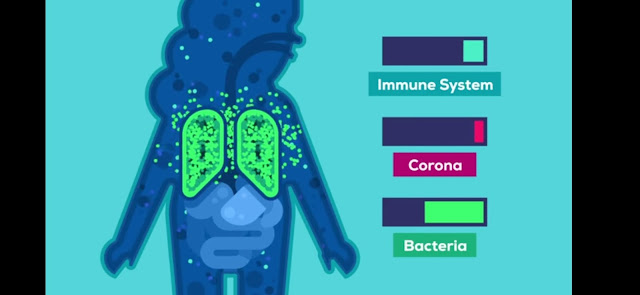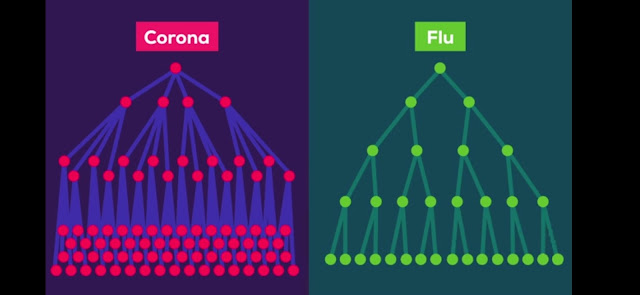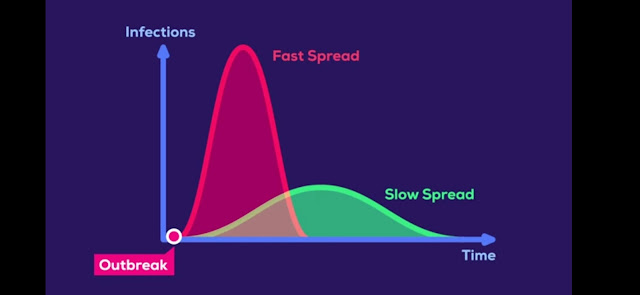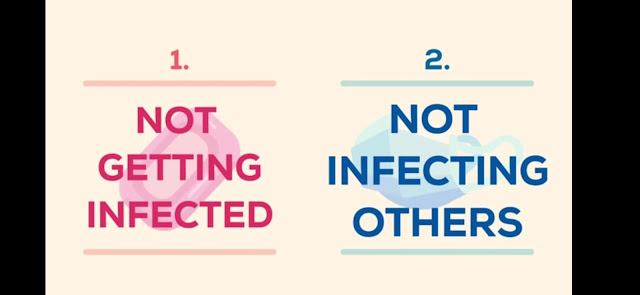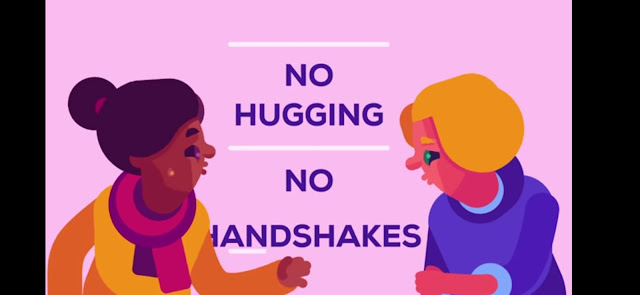In December 2019 the Chinese authorities
notified the planet that an epidemic was spreading through their communities.
In the following months, it spread to other countries, with cases doubling within days.
This virus is that the Severe Acute Respiratory Syndrome-Related Coronavirus 2 that causes the disease called Covid-19 which everyone simply calls coronavirus.
What actually happens when it infects a person's and what should we all do?
A virus is basically just a hull around
genetic material and a couple of
proteins, arguably not even a animate
thing . It can only make moreof itself by
entering a living cell. Corona may
spread via surfaces, but it's still
uncertainhow long it can survive on them.
Its main way of spreading seems to be droplet infection when people cough,
or if you touch someone who's ill
then your face, say rubbing your eyes
or nose.The virus starts its journey here,
then hitches a ride as a stowaway deeper
into the body Its destinations are the
intestines, the spleen or the lungs, where it
can have the foremos dramatic effect.
Even just a couple of corona viruses can
cause quite dramatic situation.The lungs are lined with billions of epithelial cells.
These are the border a cells of your body, lining your organs and mucosa
waiting to be infected. Corona connects to a
selected receptor on its victim's membranes to inject its genetic material.
The cell, unaware of what's happening, executes the new instructions, which
are pretty simple: copy and reassemble.
It fills up with more and more copies of the first virus until it reaches a juncture and receives one final order, self-destruct.
The cell kind of melts away, releasing new corona particles able to attack more cells.
The number of infected cells grows exponentially After about 10 days, many body cells are infected, and billions of viruses swarmed the lungs.
The virus has not caused an excessive amount of damage yet, but corona is now getting to release a true beast on you, your own system . The system , while there to guard you, can actually be pretty dangerous to yourself and wishes tight regulation. And as immune cells pour into the lungs to fight the virus, Corona infects a number of them and creates confusion. Cells have neither ears nor eyes.
They communicate mostly via tiny information proteins called cytokines. Nearly every important immune response is controlled by them. Corona causes infected immune cells to overreact and yell bloody murder. during a sense, it puts the system into a fighting frenzy and sends far more soldiers than it should, wasting its resources and causing damage.
Two sorts of cells especially wreak havoc. First, neutrophils, which are great at killing stuff, including our cells.
As they arrive in their thousands, they begin pumping out enzymes that destroy as many friends as enemies.
The other important sort of cells that enter a frenzy are killer T-cells, which usually order infected cells to commit controlled suicide. Confused as they're , they begin ordering healthy cells to kill themselves too.
The more and more immune cells arrive, the more damage they are doing , and therefore the more healthy lung tissue they kill.
This might get so bad that it can cause permanent irreversible damage, that results in lifelong disabilities.
In most cases, the system slowly regains control.
It kills the infected cells, intercepts the viruses trying to infect new ones and cleans up the battlefield.
Recovery begins.
The majority of individuals infected by Corona will get through it with relatively mild symptoms.
But many cases become severe or maybe critical.
We don't know the share because not all cases are identified,
but it's safe to mention that there's tons quite with the flu. in additional severe cases,
Millions of epithelial cells have died and with them, the lungs' protective lining is gone.
That means that the alveoli - tiny air sacs via which breathing occurs - are often infected by bacteria that are not usually an enormous problem.
Patients get pneumonia.
Respiration becomes hard or maybe fails, and patients need ventilators to survive.
The system has fought at full capacity for weeks and made many antiviral weapons.
And as thousands of bacteria rapidly multiply, it's overwhelmed.
They enter the blood and overrun the body; if this happens, death is extremely likely.
The Corona virus is usually compared to the flu, but actually, it's far more dangerous.
While the precise death rate is tough to pin down during an ongoing pandemic,
we know needless to say that it's far more contagious and spreads faster than the flu.
There are two futures for an epidemic like Corona: fast and slow.
Which future we'll see depends on how we all react thereto within the youth of the outbreak.
A fast pandemic are going to be horrible and price many lives;
a slow pandemic won't be remembered by the history books.
The worst case scenario for a quick pandemic begins with a really rapid rate of infection because there are not any counter measures in situ to slow it down.
Why is that this so bad?
In a fast pandemic, many of us get sick at an equivalent time.
If the numbers get overlarge , health care systems become unable to handle it.
There aren't enough resources, like medical staff or equipment like ventilators, left to assist everybody.
People will die untreated.
And as more health care workers get sick themselves, the capacity of health care systems falls even further.
If this becomes the case, then horrible decisions will need to be made about who gets to measure and who doesn't.
The number of deaths rises significantly in such a scenario.
To avoid this, the planet - meaning all folks - must do what it can to show this into a slow pandemic.
A pandemic is bogged down by the proper responses.
Especially within the early phase, in order that everyone who gets sick can get treatment and there is no crunch point with overwhelmed hospitals.
Since we do not have a vaccine for Corona, we've to socially engineer our behaviour,
to act sort of a social vaccine. This simply means two things:
1. Not getting infected; and
2. Not infecting others.

Although it sounds trivial, the absolute best thing you'll do is to scrub your hands.
The soap is really a strong tool.
The corona virus is encased in what's basically a layer of fat; soap breaks that fat apart and leaves it unable to infect you.
It also makes your hands slippery, and with the mechanical motions of washing, viruses are ripped away.
To do it properly, wash your hands as if you've just hack some jalapeños and need to place in your contact lenses next.
The next thing is social distancing, which isn't a pleasant experience, but a pleasant thing to try to to . This means: no hugging, no handshakes. If you'll occupy home, occupy home to guard those that got to be out for society to function: from doctors to cashiers, or police officers;. You depend upon all of them; all of them depend upon you to not get sick. On a bigger level, there are quarantines, which may mean various things , from travel restrictions or actual orders to remain reception . Quarantines aren't great to experience and positively not popular. But they buy us - and specially the researchers performing on medication and vaccinations - crucial time So if you're anesthetize quarantine, you ought to understand why, and respect it.👏👏
None of this is often fun. But watching the large picture, it's a very small price to pay.
The question of how pandemics end, depends on how they begin ; if they start fast with a steep slope, they end badly.
If they begin slow, with a not-so-steep slope, they end okay-ish. And, during this day and age, it really is altogether of our hands. Literally, and figuratively.
Please read carefully & stay your home .



